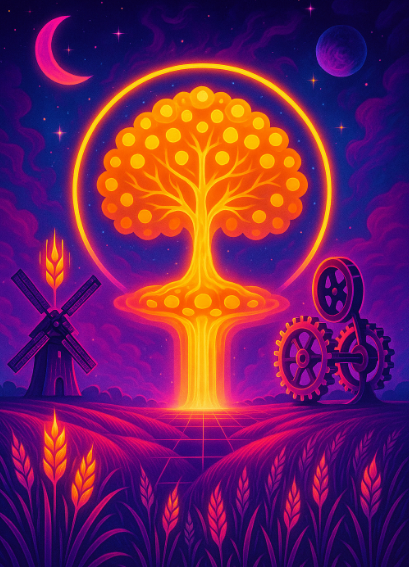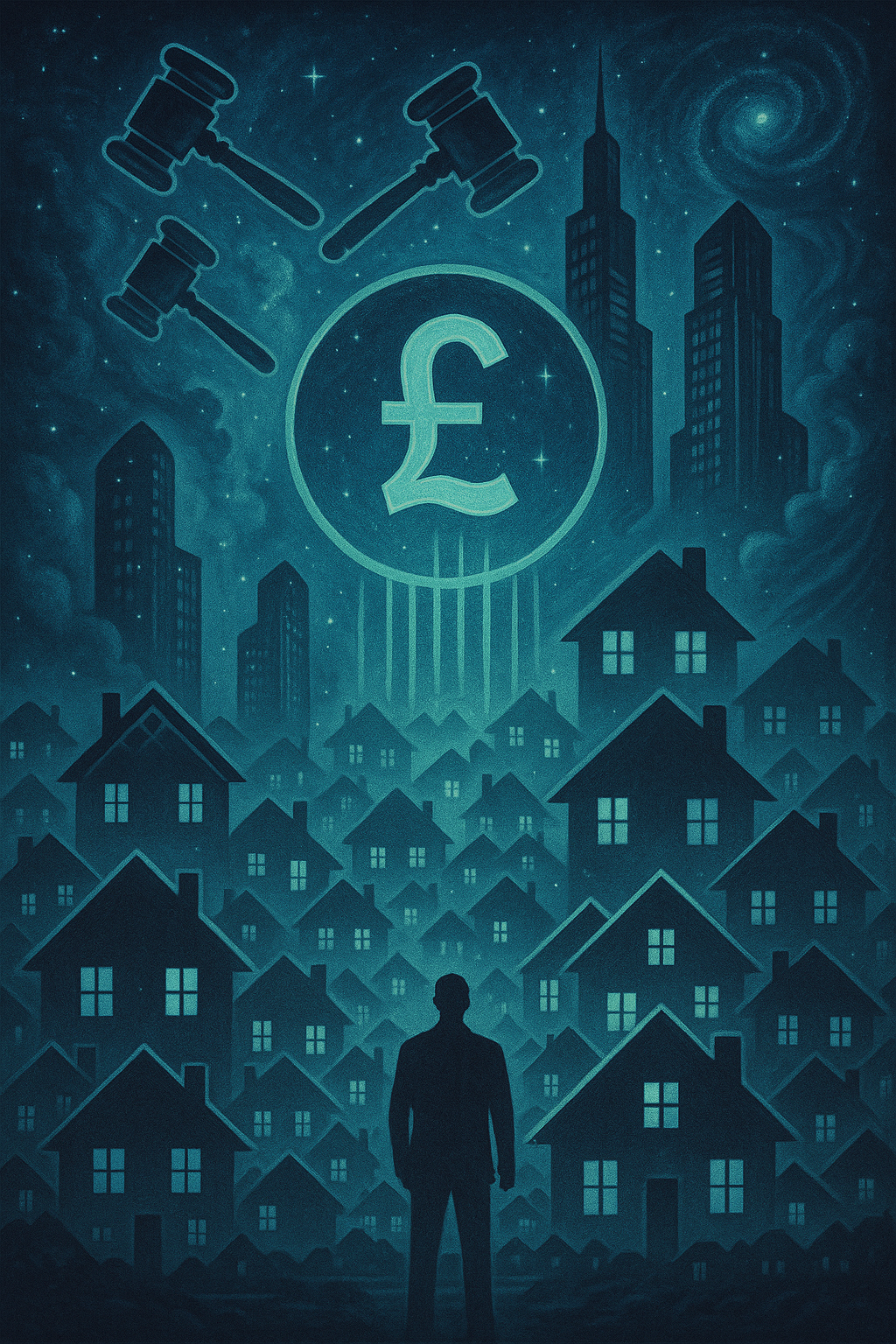The Perils of Corporate Omniscience: Data, Prediction, and the Loss of the Self
Popular articles
Corporate control looms as a specter, not of malice but of mastery—an ability to predict your every step, your thread woven into a tapestry of millions, all legible to those who hold the loom. This power stems from data, a vast and restless sea of particulars: what you buy, where you linger, whom you trust. It need not be deliberate—accidental gleanings from a spilled ledger or a mislaid record suffice—yet the outcome is the same. The danger is not merely intrusion but erasure: a life reduced to a pattern, a self stripped of mystery, a society bent to the will of those who foresee. This essay probes the mechanics of this predictive dominion, its historical echoes, and the peril it poses to human autonomy.
The mechanism is deceptively simple. Corporations thrive on anticipation—knowing your next want before you do. Every act feeds their archive: a grocer notes your bread, a tailor your measure, a banker your debt. These fragments, once scattered, now converge—your thread, a single strand, knotted with countless others in their grasp. History offers a prelude: the East India Company didn’t just trade tea; it mapped villages, diets, feuds, turning subjects into ciphers for profit. Scale that to the modern firm—each purchase a datum, each pause a clue—and the portrait sharpens. Intent is secondary; a clerk’s error, a ledger left open, adds as much as a spy’s design. The result is a map of you, precise and pitiless.
Prediction is the fulcrum. To know is to steer: if your thread—say, a penchant for late-night sweets—joins millions, patterns emerge. The corporation need not conspire; it calculates. Philosophy frames this—Hume’s causality suggests each choice links to the last, and firms wield this as a science. The 18th-century insurer gauged sailors’ risks by tavern tales; today’s merchant does it by your footsteps, traced across markets and moods. Accidental data—a forgotten note of your haste—feeds the same beast as the deliberate hoard. You become legible: sweets at dusk mean a sale by dawn. This foresight isn’t neutral; it’s power, bending your path to their ends.
The danger crystallizes in its reach. Your thread, once yours, dissolves into their weave—millions predicted, millions nudged. History warns: the Gilded Age trusts didn’t just sell oil; they foresaw strikes, mapped towns, owned lives before the first picket fell. Now amplify that—your every move, from a whim to a want, charted among the mass. Rousseau’s natural man, free and unscripted, withers here; you’re not a soul but a statistic, your autonomy a casualty of their clairvoyance. Even unintentional control—data slipped from a careless hand—yields the same: a society of marionettes, tugged by strings they didn’t cut.
This omniscience erodes more than privacy—it hollows agency. If your thread is known—your fears, your frailties—then your choices shrink. The Stoics prized self-mastery, but how master yourself when another holds the script? The medieval guild kept its books, yes, but its grasp stopped at the gate; today’s corporation stretches past walls, into the marrow of your days. A mislaid tally of your debts, merged with millions, forecasts your ruin—or your next loan, timed to trap. The danger isn’t the intent but the effect: a life preordained, not by fate but by formula, your role cast before you play it.
Society bends under this weight. A culture of the predictable isn’t vibrant—it’s rote, a clockwork of wants wound by those who see the gears. History’s monopolies—Rockefeller’s oil, Carnegie’s steel—didn’t just dominate; they dictated, towns ticking to their tune. Scale that across threads uncounted, and the peril deepens: a collective life where spontaneity fades, where your thread and mine align not by will but by design. Even accidental mastery—data spilled, not sought—breeds this sterility; the corporation need not plan your cage to build it. The risk is a world of shadows, not souls, each move a step they’ve seen.
The philosophical sting cuts deepest. Locke’s liberty rested on the unknowable self—your rights, your plot, yours alone. Corporate prediction upends this: if your thread is theirs, mapped among the multitude, where lies your claim? Bentham’s panopticon, meant for prisons, fits here—watched, you conform, even if the watcher stumbles into sight. The danger isn’t the lash but the lens: a society of the foreseen lacks the friction of freedom. Data, controlled or not, fuels this—every scrap, intentional or stray, tightens the net. Your thread, once wild, is tamed, and with it, the chance to be more.
The verdict is unsparing: corporate control, predicting your every turn, is a quiet tyranny, born of data’s sprawl. It need not be malice—accident suffices—but the outcome stands. History’s profiteers grasped less yet wrought havoc; today’s reach is vaster, the peril sharper. Your thread, knotted in millions, isn’t yours when they hold the ends. Structures falter here: a civilized order demands the uncharted self, not a pawn pre-moved. The danger is real—not in their greed, but in their gaze. To live free is to be unseen; to be seen is to be owned.
Subscribe to unlock premium content
Sed at tellus, pharetra lacus, aenean risus non nisl ultricies commodo diam aliquet arcu enim eu leo porttitor habitasse adipiscing porttitor varius ultricies facilisis viverra lacus neque.
The Great Wealth Generation Act 1.0

The Great Democracy Restoration Act

UK Nutrition Act 1.0

The Great Wealth Generation Act 1.0

The Great Democracy Restoration Act

The Great Wealth Generation Act 1.0







